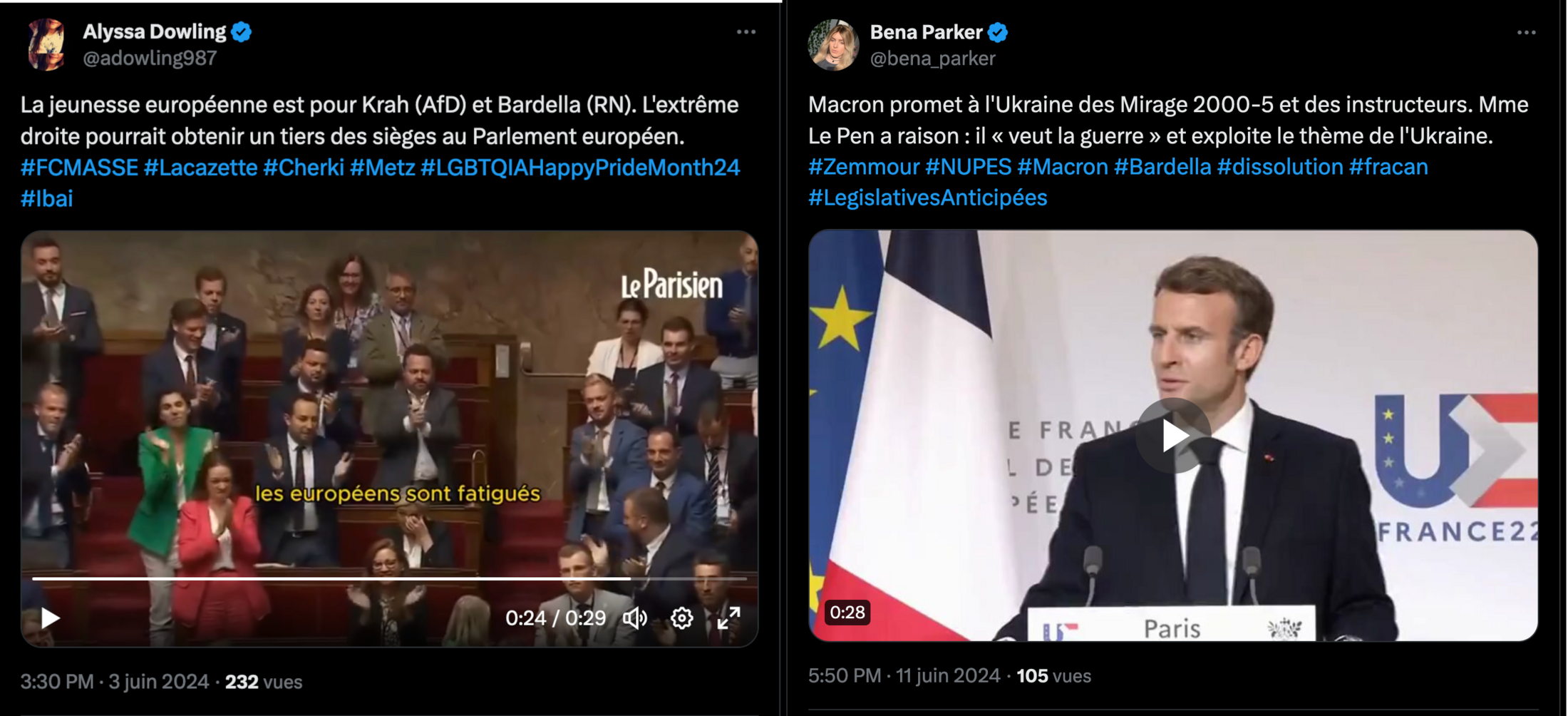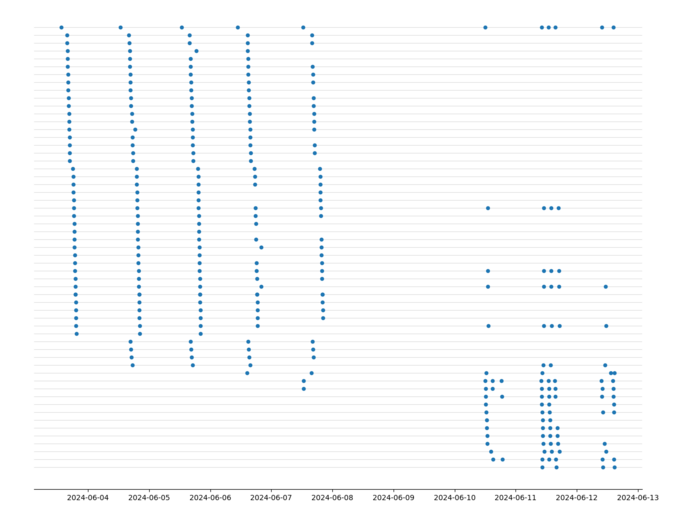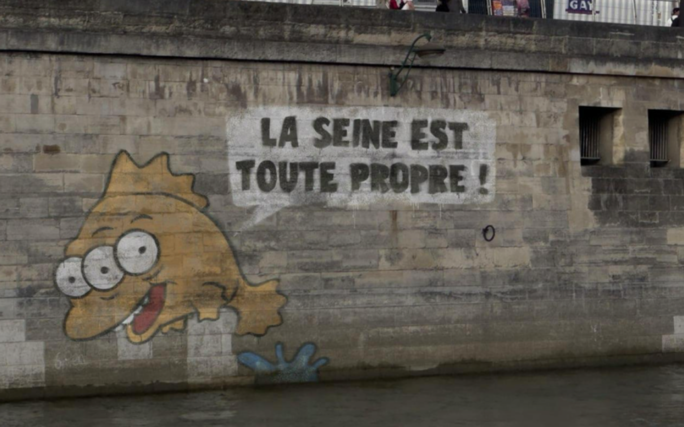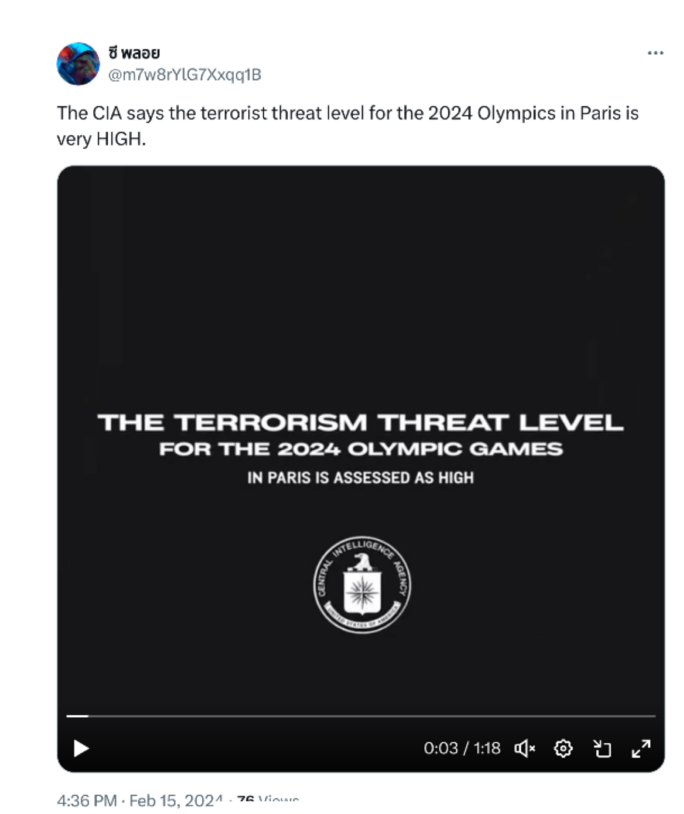Officially, France’s far-right Rassemblement National party (RN), the former Front National, no longer has any links with the Kremlin, and the times when the party negotiated loans from Russian banks, and when its figurehead Marine Le Pen adopted the foreign policy line of Vladimir Putin, even travelling to Moscow to meet him, are over.
But the Kremlin apparently has no intention of ending its support for the RN, which it considers to be an ally in Europe. Mediapart has learnt that pro-Russian groups led a campaign to influence French voting during the recent European Parliament elections in favour of the list of candidates led by RN chairman Jordan Bardella. That list trounced the second-placed list of President Emmanuel Macron’s party, Renaissance, garnering almost twice the number of votes cast for the latter.
Following that result, Macron called snap general elections (to be held on June 30th and July 7th), a decision which has thrown the French political scene into chaos, amid heightening speculation that the far-right could form the next government.
The pro-RN campaign involved the online publication of several thousands of posts, according to two well-informed sources, and were centred above all on the social media platforms TikTok, X, Facebook and Telegram. These included fake photos suggesting that walls across France were covered with posters in support of Bardella.
In terms of the audience it drew, the fake information campaign was apparently not very successful, but it was nevertheless sufficiently important for the French services that protect against foreign interference online, the Viginum, for them to inform the RN in May.
Mediapart has identified other online campaigns published by pro-Russian groups. One of them, which appeared on X (formerly Twitter) shortly before the European election polling began, proclaimed that “The young in Europe are for Krah (AfD) and Bardella (RN)”, referring to Maximilian Krah, of the German far-right AfD party, and adding that, “The far-right could obtain a third of seats in the European Parliament”. The post was joined by a video announcing that “Europeans are tired of immigration policies, economic problems and support for Kyiv”.
Another, posted in French on X the day after the European elections in France, and which included the hashtag #LégislativesAnticipées (for snap elections), read: “Macron promises Ukraine Mirage 2000-5 planes and instructors. Ms Le Pen is right: he ‘wants war’ and uses the theme of Ukraine.”

Enlargement : Illustration 1

The messages were posted by users of a connected group of around 60 accounts on X, which publish, in a coordinated and automated manner, videos and messages that focus on the war in Ukraine, Russia-EU relations, and the rise of the far-right in Europe.
The similarity of the contents, the synchronisation of the times of the day when they are published (see chart below) and the systematic use of fake user profile photos leave no doubt that these accounts are false, probably managed by troll factories or other sub-contractors remunerated for operations to influence public opinion.

Enlargement : Illustration 2

Who or what is behind the operations? A number of leads point to Russia, for apart from the subjects that the posts comment on, in a language perfectly in line with the official language of the Kremlin, a number of false photos come from Instagram pages belonging to Russians or Russian-speaking individuals.
One of the online accounts used for the influence campaigns was presented as being that of a French person, and published messages only in French until on one occasion – no doubt by mistake – it published a message in Russian. As with the campaign identified by Viginum, the French agency that fights foreign interference online, the impact of the messages in terms of audience appears to be modest, attracting just a few hundred views.
RN figurehead Marine le Pen, the party’s candidate in past and, in all probability, future presidential elections, was questioned by Mediapart about the shady online campaigns in support of the RN when she visited her constituency town of Hénin-Beaumont, in north-east France, on Friday. “I’ve never heard about that, and Jordan has never heard about that,” she told Mediapart. “[It’s] nonsense. I’ve never heard about that. Give me the name of the person who told you that. They lied. It’s a lie that’s intended to cause damage.”
However, just one hour later, when Mediapart similarly questioned the RN press officer, he confirmed that on May 16th “the general secretariat for national defence and security […] contacted Jordan Bardella’s chief of staff, François Paradol, and his campaign director, Alexandre Loubet” on the subject of the false accounts used to promote support for the RN European election campaign, following which, “François Paradol of course informed Jordan Bardella, in his position as lead candidate and, as such, [directly] concerned” by the matter.
The RN added that it was not behind the disinformation campaign, had not requested it, and condemned what it called “a destabilisation operation”.
A Telegram channel directly linked to the Kremlin
The recent disinformation campaign in support of the RN is just one more of many aimed at influencing the French public. On June 10th, Viginum published a report detailing another case of “foreign online interference” that was launched last year. It’s name was given as ‘Operation Matrioshka’ (for Russian dolls). Viginum said the aim of the operation was to discredit certain French personalities, media and fact checkers.
Earlier this year, French news agency Agence France-Presse and the Finnish anti-disinformation software company CheckFirst had reported on part of the operation, but the Viginum report provided added technical details. It said that the campaign was played out in two stages.
The first of these was posting false information online. This included a video, presented with the logo of the CIA, warning that the threat of terrorism during the Olympic Games in Paris was “high”. There was also a message pretending to be from Paris City Hall, calling on the inhabitants of the capital to not use air conditioning units because these emit microwaves that could disrupt anti-drone security systems during the Olympics. Yet another was a video purporting to be made by the Groupe Union Défense (GUD), a far-right student organisation, in which it threatened to “burn the Bank of France” because the institution had supposedly lied about its solvency.

Enlargement : Illustration 3

The disinformation contents include fake photos of graffiti (often of an anti-Semitic nature), with caricatures of Ukrainian and European personalities, supposedly photographed in the streets of large Western cities. There are also messages that use the graphic charter (visual identity) of media, institutions and Western NGOs. The Viginum report detailed that such contents are published in French, English, Italian, German, Russian and Ukrainian.
In less than an hour, Viginum noted, the contents are then relayed by a group of accounts different to those which first posted them on social media. That second group publishes, in coordination, what appear as comments or responses to publications on media accounts, or those of fact checkers and personalities across around 60 countries. The “Matrioshka” operators directly called upon their targets to investigate the fake contents.
Viginum reported that it identified around 90 actions of the sort, and that at least 500 accounts on X had been targeted since “Operation Matrioshka” began in September 2023.

Enlargement : Illustration 4

Viginum said that France was “a choice target of the campaign”, and that the visual identities of news channel BFMTV, national dailies Le Parisien, Libération and Le Monde, and regional daily La Montagne had all been usurped, along with that of the Bank of France, Paris City Hall and the domestic intelligence agency, the DGSI, and that fake information was published in their names.
It also reported that “at least” about 40 French accounts on X had been targeted by requests that they investigate the fake news. These included broadcasters TF1 and FRANCE 24, the weekly Le Journal du dimanche, the anti-hate speech collective Sleeping Giants, TV and radio presenter Jean-Marc Morandini, the journalist Tristan Waleckx – and the prefecture of the Val-d’Oise département (county) north of Paris. Accounts used by “Operation Matrioshka” also contacted Mediapart asking it to fact-check fake contents, including one which suggested that bed bugs could be deadly for humans.
If I was in the Russians’ shoes, given how things are in France at present, I’d have a tendency to tell myself that I don’t even need to add to that.
The Viginum report does not precisely designate who is behind the disinformation campaign, although several aspects suggest Russia. First of all, the content of the false publications is often anti-Ukrainian, targets the French government’s support for Ukraine, and also seeks to spread the idea that the Olympic Games to be held this summer in Paris will be a failure, all of which corresponds with Kremlin propaganda, including official statements.
Secondly, Viginum established that most of the disinformation had been previously published on Russian Telegram channels which it said had “already been identified in information manoeuvres”. Notably among these is the Telegram channel @sheyhtamir1974 which The Washington Post has reported as being managed by an “S centre” linked to the Russian presidential administration and tasked with coordinating influence operations abroad.
In its own report, the Finnish company CheckFirst concluded that the Matrioshka operation succeeded because more than 250 articles published by bona fide media included false content put about by the operation – although CheckFirst did not name the media in question nor detail the fake information published.
While the disinformation remained relatively little relayed on social media, the Viginum report concluded that seeking a large audience “appears to be a secondary aim of the operators”, behind that of “undermining the credibility of Western personalities and media involved in fact checking”.
Some fear that a new and specific disinformation operation will target the French legislative election campaigning, which officially began on June 17th. In a post on X earlier this month, the collective group AntiBot4Navalny, which tracks Kremlin-sponsored disinformation activity, said that during one operation, codenamed Doppelgänger, launched in 2022 to undermine support for Ukraine after Russia’s invasion of the country, the group “registered nearly 17 million views, as a result of over 7 million bot (re)tweets, all in less than 72 hours – what could be a stress tests for something more important. Maybe we will see that in the nearest weeks aiming France, given the dissolution of National Assembly.”
However, one senior French civil servant with expert knowledge of online disinformation campaigns, referring to the ongoing political chaos in France brought about by the snap elections, told Mediapart: “If I was in the Russians’ shoes, given how things are in France at present, I’d have a tendency to tell myself that I don’t even need to add to that. What they’re interested in is creating a mess. It’s already a mess. Why would they bother themselves with using up ammunition?”
-------------------------
- The original French version of this report can be found here.
English version by Graham Tearse


